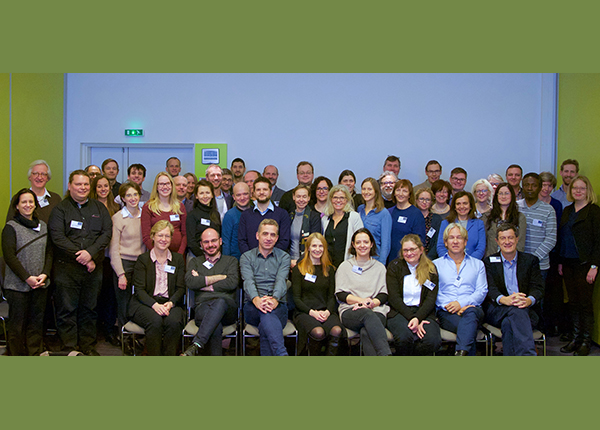The main objective of MultipleMS is to develop novel personalised medicine approaches for multiple sclerosis (MS) patients. Our goal is timely, not only because there is an urgent need for precision management of MS but also because necessary knowledge, methodologies and vast multi-layer data resources are now available.
MultipleMS has 22 partners originating from 15 countries, with the main hub at the Karolinska Institutet, Stockholm, Sweden. The consortium will grow by addition of new centres of excellence during the project phase.
PricewaterhouseCoopers, Amsterdam, Netherlands

Multiple sclerosis (MS) is an immune-mediated disease and a leading cause of non-traumatic disability in young adults in Europe. People with MS experience marked reduction in quality of life and MS patients aged 18-29 report their health status to be similar to 80 year olds in the general population. In addition to this social impact, MS has economical consequences to society. The cost of MS increases with increasing disability reaching an annual cost of € 60.000 for patients who have reached progressive stage of disease, with the largest part being indirect costs. Hence, MS is one of the most expensive chronic diseases even compared to many diseases with higher prevalence.
While the cause of MS remains unknown, it is well established that both genetic and environmental factors such as life style exposures, play a role in the disease etiology. MultipleMS partners have been involved in showing that 238 genetic variants associate with susceptibility to develop MS and that lifestyle factors affect the risk of MS. Independently these factors typically confer modest effects but their combined effects convey a dramatic increase in the risk to develop MS. However, despite this considerable progress in genetic epidemiology of MS in recent years, the exact mechanisms of genetic and lifestyle factors and especially their combined roles remain unknown, thus hampering our deep understanding of disease mechanisms and the full potential of personalized medicine.
To develop novel personalised medicine approaches for MS patients, we will identify a combination of evidence-based selection of clinical, biological, and lifestyle features that can predict the clinical course, stratify patients based on their risk and the therapeutic response to the existing drugs in a real-world setting, and to gain in-depth knowledge of distinct pathogenic pathways to allow identification of targets for novel treatments. Our goal is timely, not only because there is an urgent need for precision management of MS but also because necessary knowledge, methodologies and vast multi-layer data resources are now available.
MultipleMS will identify stratified patient populations utilizing unprecedented large cohorts rich in genetic, lifestyle, clinical, imaging and DMT response data. Publically available large scale ‘multi- omics’ data, in particular high-resolution maps of immune cells, in combination with ‘multi-omics’ data from MS patients, will empower identification of biological pathways underlying stratified patient populations. MultipleMS will further validate these pathways in a prospective observational study, prioritize novel therapeutic targets and initiate a drug development program.
C.F. 97644730588 | Managed by EEM Services